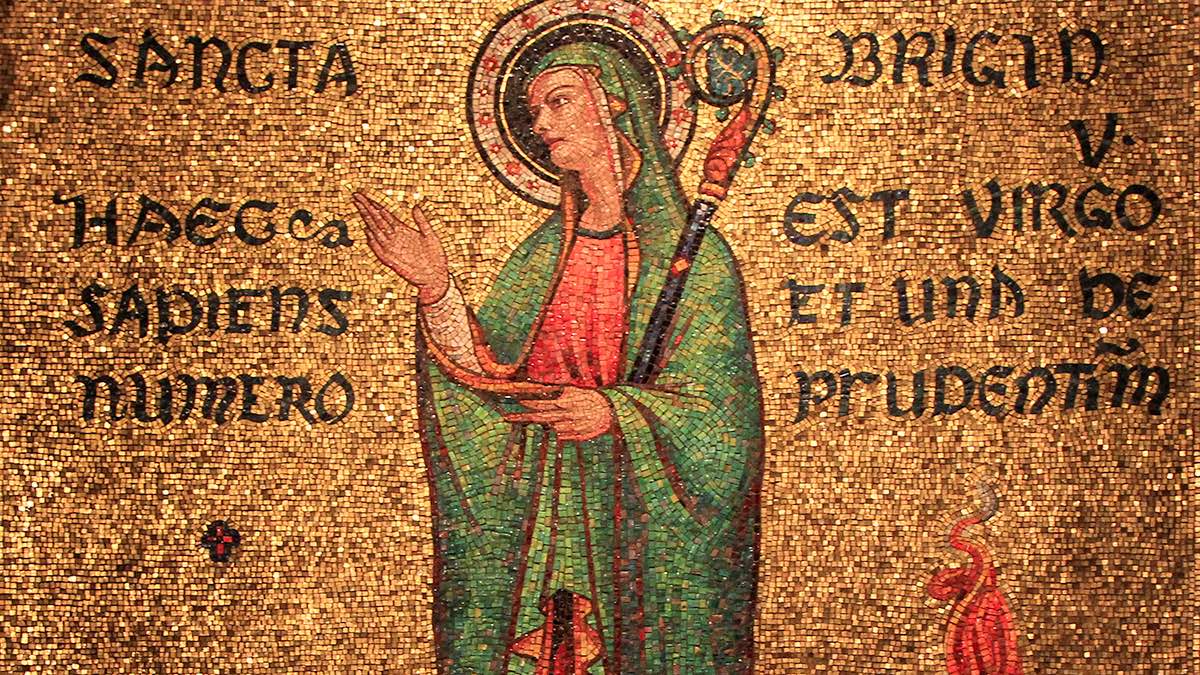
The first Irish bank holiday to be named after a woman has taken place in Ireland.
St Brigid is one of Ireland’s three patron saints, along with St Patrick and St Columcille.
The group Herstory worked on a three-year campaign to get the public holiday introduced.
The holiday will be held on the first Monday in every February. A number of events have already taken place across Ireland to celebrate the occasion, including a festival of light show in which images of Irish heroines were projected onto landmarks.
Laura Murphy - a poet and daughter of a mother-and-baby-home survivor - was among those to campaign to have St Brigid officially recognised.
“Brigid is a figure in Ireland that represents feminism; and with patriarchy, colonisation and the Church, the feminine has been written out of history and out of our society,” she said.
“So, the symbolic significance of honouring a woman and a woman as eminent as Brigid is about signalling a new era for Ireland based on her principles of equality, unity, truth, compassion and love.”
Ms Murphy wrote an open letter to the Taoiseach calling for the day to become a national holiday and a petition received 16,000 signatures.
“She is one of the few characters in history that you can relate to whether your an atheist or a religious or spiritual person,” she said.
“There is a lot of wisdom to be remembered and to be gained by connecting in with Brigid and it’s time that the feminine officially was recognised in modern Ireland.”
Brigid was a triple goddess of healing, fire and of poetry.
The saint who took her name - who was reportedly born in 450 AD - carried some of those associations. She is the patron saint of poets and midwives.
Brigid’s roots lie in the Celtic festival of Imbolc, celebrated at least five millennia ago.
In Ireland, 1 February marks the beginning of spring and the celebration of Lá Fhéile Bríde - St Brigid’s Day.
Brigid’s name is synonymous with Kildare as it is believed she founded the Church of Kildare.
Niamh Wycherley, medieval historian at Maynooth University, said historical sources agree that Brigid was a real person.
“They all agree she was of a people called the Fothairt and that they were a people that were in the Leinster region probably around the area around Kildare or Offaly,” she said.
“They also all agree that a woman founded the Church of Kildare and we are told in the earliest sources her name was Brigid.
“Whether she was or wasn’t called Brigid, the woman who founded Kildare is famous for doing so because Kildare became one of the most powerful institutions in the country.”
Ms Wycherley added that this was particularly remarkable in medieval Ireland during a time when society was deeply patriarchal and hierarchal women had limited legal capacity.
This year also marks the 1,500th anniversary of the death of Brigid, who is said to have died in the year 524.
![[Irish Republican News]](https://republican-news.org/graphics/title_gifs/rn.gif)
![[Irish Republican News]](https://republican-news.org/graphics/title_gifs/harp.gif)

